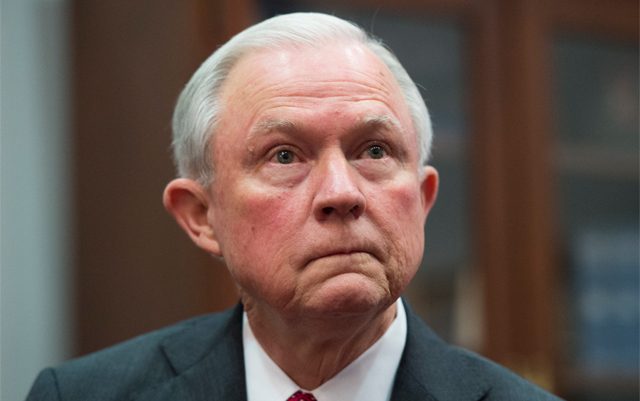Since Jeff Sessions was confirmed as U.S. Attorney General there has been a lot of concern over how the new administration is going to handle the growing cannabis industry in the country. While the previous administration had been perfectly fine with letting states move forward with legalization laws, the new AG is not quite as on-board with the idea. Though Sessions had privately told members of Congress that he intended to leave states alone when it comes to cannabis, he has also made statements since his confirmation in office that are very contradictory to that idea.
Luckily, Congress doesn’t plan to let Sessions use any of the Department of Justice funding to go after medical marijuana patients or businesses as long as they are in compliance with the laws of their state. In order to prevent this, lawmakers have renewed the Rohrabacher-Farr amendment, which is part of the budget that will run the country through September. This particular amendment has been renewed each time the budget has been since it was introduced in 2014 – but it is the only solid action that Congress has taken to protect cannabis businesses.
“While this is great as a continuing step, it’s important for activists and the industry to remain vigilant and getting cannabis federally unscheduled and truly ending the prohibition of this medicinal plant,” Zucker said.
The amendment specifically lists all but two states which have recently legalized medical marijuana or CBD oil in some form – those two not mentioned being North Dakota, which passed their law in the election last November, and Indiana which passed a CBD oil law just last week. Whether or not this will be revised before the final version of the budget bill is passed has not yet been mentioned. The bill also doesn’t protect recreational cannabis businesses, which could potentially be all Sessions needs to attempt his “crack down” on marijuana in at least 8 states and D.C.
Other bills have been introduced in hopes of either rescheduling cannabis, removing it from the Controlled Substances Act or at the very least overhauling the banking and taxes aspects of the industry which are extremely affected by federal prohibition. Whether or not there is enough support from the rest of Congress to pass such a bill is unclear – and whether or not President Trump would sign or veto such a law is also extremely uncertain. But at least we can say some sort of effort is finally being made to end prohibition on a federal level.







I am 65 years old cannabis has so many great medical uses it’s hard for me to understand why there’s so much fuss over a plant that God put here on this earth,I’m a stroke survivor and have very serious health issues. Cannabis helps me with pain and a lot of other things with no bad side effects.I really can’t believe they have it still a schedule 1 narcotic which means it has no medical value at all.That’s just wrong!!!
I am 72 and vape nightly to sleep and it keeps my L leg muscles from becoming one giant Charlie horse. I had polio at age 4 and the damaged muscles get fatigued and cramp up. Over the years the meds for the pain were narcotics that made me sick and I had no choice until a kind Orthopedic Dr. told me about Pot. So the last 15 years I haven’t needed the narcotics or sleeping pills to get thru a nights sleep. I thank the lord for a simple plant that also really helped my arthritis in my feet.
It is the 21st century. 1st remove cannabis from a schedule 1 drug. Since th U. S. Government has had a patent since the 1970’s and I think the government grows there cannabis at Oxford, MS. There has been so many proven medical benefits for cannabis. There has been research from so many civilian labs with positive results and none from our government. Get serious and go after serious problems, like crack, cocaine, herion, etc.